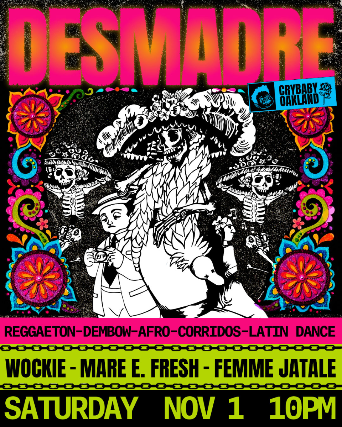learn Spanish
Latest stories
More stories
-
Híjole: the little Mexican exclamation that has many meanings
by
Admin updated
If you’ve listened to Mexican Spanish for a while, you’ve probably heard a short, breathy sound that comes out on surprise, irritation, admiration or mild defeat. That little word is híjole (sometimes written hijole, sometimes híjoles), and it’s one of those automatic expressions that people use without thinking. The Real Academia defines híjole as a […] More
-
263 Views
in Culture, Mexico, Spanish, VocabularyDiminutives for Food in Mexican Spanish
by
Admin updated
If you spend time in Mexico, you will hear diminutives everywhere — and food is one of the favorite places to find them. Un cafecito, unos huevitos, tómate tu lechita, un pastelito, unas tortillitas calientitas… these little endings do a lot of work. They sometimes mean size, but often they mean something else: friendliness, politeness, […] More
-
40 Views
in Spanish10 Expressions That Are Not Easy to Figure Out. Desmadre
by
Admin updated
The Spanish you hear on TV in the US is full of expressions that sound confusing for students because their literal meaning has little to do with the real intention. Sometimes these are very colorful, sometimes strong, sometimes playful. They are used every day, and even though they look difficult, once you know them, they […] More
-
117 Views
in SpanishOVNI
by
Admin updated
OVNI looks strange at first sight, but it’s one of those acronyms that became a normal everyday word. In Spanish, OVNI stands for Objeto Volador No Identificado — literally Unidentified Flying Object (UFO in English). What’s interesting is that Spanish isn’t the only language to use OVNI. French, Italian, Portuguese, and Catalán all built the […] More
-
214 Views
in SpanishNames of Some Jobs — Remake 2.0
by
Admin updated
This is an updated and expanded version of an older spanishNY.com post. If you’re learning Spanish, it helps to know both the formal profession names (doctor, abogado) and the local, informal words you’ll hear on the street, in markets, or at small businesses. Below is a large table with many job names, some of […] More
-
286 Views
in SpanishWhite and Black, Blanco y Negro
by
Admin updated
Back in 2006, spanishNY.com published a small post about an interesting language phenomenon: Spanish and English often use the same pair of words — but in reverse order. Now, almost 20 years later, here’s a remake. Some of these pairs are so common we barely notice them anymore. Others are fun little surprises. Either way, […] More
-
217 Views
in Culture, Grammar, Spanish, TranslationThe Many Faces of “Pues”: One Tiny Word, So Many Meanings
by
Admin updated
If you have ever studied Spanish and thought you were starting to understand it, a little word like pues probably appeared and ruined your confidence. Dictionaries will tell you that pues means “since,” or “because,” or “then,” or “so,” and they are not wrong — but they are not fully right either. The truth is […] More
-
67 Views
in Funny, Mexico, Spanish, Table of Expressions10 Spanish-language Expressions That Are Not Easy to Figure Out. Tres Doritos Después.
by
Admin updated
Everyday phrases that don’t translate directly Spanish is full of expressions that confuse students because the literal meaning does not match the actual usage. Some of them are playful, others are pejorative (so they are better learned than repeated), and a few are just Mexican. Here is a batch of ten more examples. Spanish expression […] More
-
33 Views
in Spanish, Translation, VocabularyPasado Mañana: When “Past” Actually Means the Future
by
Admin updated
For many English speakers learning Spanish, the phrase pasado mañana is one of those expressions that makes them stop and think: “Wait a second, why does it mean the day after tomorrow if pasado usually means past?” It looks like it should refer to something that already happened, but in Spanish it actually points to […] More
-
47 Views
in Culture, Funny, Spanish, VocabularyFulano, Mengano and Zutano: The Mysterious and Funny Names of Nobody
by
Admin updated
If you study Spanish long enough, sooner or later you will hear the words Fulano, Mengano and Zutano. These names don’t really belong to anybody, but they are used to talk about a person without saying the real name, or when the name is not important. For example, someone can say “Fulano me dijo que…” […] More
-
1.8k Views
in Grammar, Mexico, Spanish, Table of Expressions, Translation, VocabularyCarrazo 2.0: Spanish words that end with -azo
by
Admin updated
Almost 20 years ago we posted about -azo / -aza on SpanishNY. This is the updated version. In Spanish, this ending can mean bigger/awesome, or it can mean a hit/blow with something. There isn’t a perfect one-word match in English, so the best way is to learn it by examples. “Bigger / awesome” uses Spanish […] More
-
199 Views
in UncategorizedAmanecer: much more than just “sunrise”
by
Admin updated
When English speakers learn Spanish, they are usually told that amanecer means sunrise. That is correct sometimes, but the truth is that in Spanish the word amanecer goes far beyond that. It is not only a noun, it is also a verb, and Spanish speakers use it in ways that simply do not exist in […] More
















